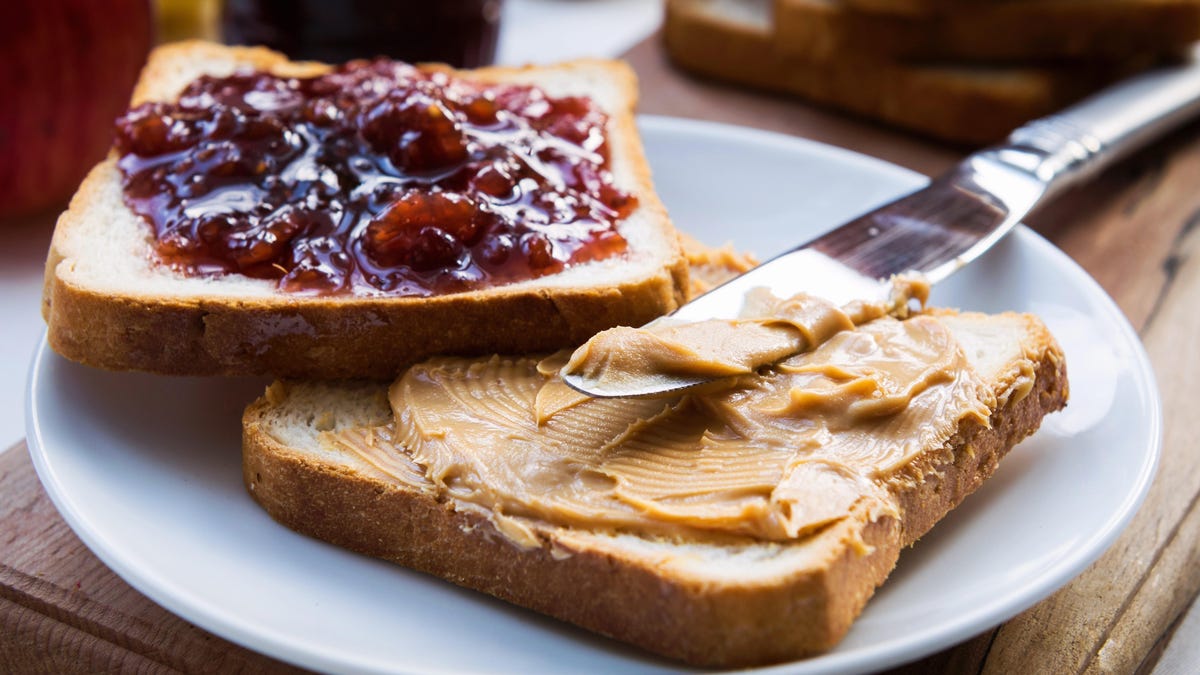I grew up in a PB-in-the-fridge household. Every other jar that’s been opened lives in the fridge, so why not the peanut butter too? If you’ve been refrigerating your peanut butter, though, it may shock you to know that many people don’t—and peanut butter is actually perfectly safe at room temperature.
That said, there are reasons you may prefer to keep peanut butter cold; that depends on your preferences and on what kind of peanut butter you keep on hand. But first: the safety quesiton.
Unrefrigerated peanut butter is safe
Peanut butter is one of those foods that you don’t need to refrigerate (see also: oil, honey, tomatoes, and even, with caveats, butter.)
The USDA’s Q&A database includes a brief entry on the shelf life of peanut butter. If the jar hasn’t been opened, you can expect it to last in the pantry for six to nine months. After opening, it’s good for two to three months. In an entry on shelf-stable foods, peanut butter is given as an example of a food that is “safe indefinitely.” It may take on a stale flavor or an unappetizing texture or color over the years, but it’s not likely to kill you.
How is this possible? A jar of peanut butter is mostly oil and solids. Like dairy butter, peanut butter just doesn’t have enough water in it to be a hospitable place for germs to grow.
How to decide where to keep your peanut butter
So peanut butter is safe at room temperature. That doesn’t mean it’s bad to keep it in the fridge, so here’s where you’ll have to consider a few other factors.
The first is how long it takes you to go through a jar of peanut butter. Many people have no problem eating their way through the jar in a matter of weeks or, for some of us, days. But if you tend to have the same jar sitting around for months on end—longer than the two to three months the USDA recommends—it will stay fresher if you keep it in the fridge.
The other consideration is texture. If you use a natural peanut butter that tends to separate into oil and solids, you can mix it thoroughly and then store it in the fridge. That way, the peanut butter will stay mixed longer. On the other hand, if you like your PB to be as spreadable as possible, you may prefer the softer texture that comes with storing it in the pantry.

